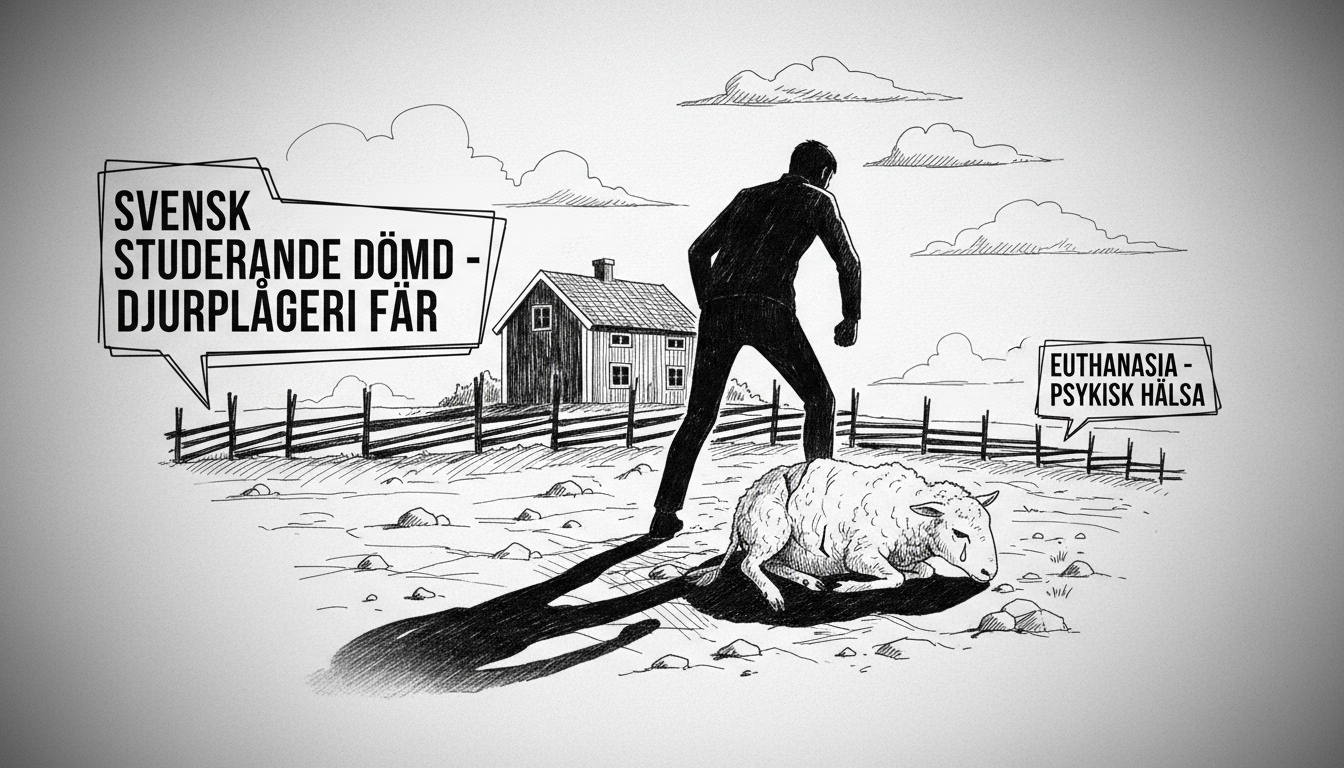A Swedish student from Lillerud has been convicted of severe animal cruelty in a disturbing case that has shocked local communities. The court found the student guilty of brutally attacking a sheep that later had to be euthanized due to its injuries.
The student neither admitted nor denied the allegations during proceedings. He claimed he could not remember the incident because he experienced either a blackout or psychosis at the time. Court documents reveal he released several sheep from their enclosure to observe their reactions during the evening.
Two of the animals were recovered safely, but the third sheep was discovered the next morning some distance from the farm. The animal remained alive but suffered severe knife wounds to its neck. Veterinarians determined the injuries required immediate euthanasia to end the creature's suffering.
Police discovered an axe and a knife during a search of the student's room. These tools matched the injuries found on the sheep. The weapons were seized as evidence in the investigation.
The court's judgment described the animal's suffering in explicit terms. Officials wrote that it was difficult to imagine greater or more prolonged suffering for an animal than what this sheep endured. The ram walked a considerable distance after being stabbed in the head and neck. Temperatures dropped below freezing during the night, and at least twelve hours passed between the initial injury and when the animal could finally be put down.
Interrogation records reveal concerning details about the student's behavior and interests. He expressed fascination with drinking blood and eating raw meat. He reportedly asked an AI tool whether drinking blood could become addictive. The student mentioned experiencing increasing cravings for blood with each instance of consumption.
This case highlights Sweden's strict animal welfare laws and their serious enforcement. Swedish courts treat animal cruelty cases with substantial gravity, often resulting in severe penalties for convicted offenders. The Nordic country maintains some of Europe's most comprehensive animal protection regulations.
Animal rights organizations have long advocated for stronger enforcement of existing laws. This conviction demonstrates the judicial system's willingness to prosecute severe cases aggressively. Legal experts suggest the student likely faces significant consequences beyond the immediate legal judgment.
International readers should understand that Nordic countries typically impose stricter animal welfare standards than many other nations. Sweden's animal protection laws reflect deep cultural values regarding humane treatment of creatures. The legal system provides substantial protections for animals against unnecessary suffering.
The case raises questions about mental health support systems within educational institutions. Some observers wonder whether earlier intervention might have prevented this incident. Schools across Sweden may review their student support protocols following this disturbing event.
Local farmers have expressed concern about security measures protecting their livestock. Many are reviewing their perimeter fencing and monitoring systems. Rural communities often depend on mutual trust and security, which incidents like this can undermine.
Legal proceedings will continue to determine the student's final sentence. Swedish courts consider multiple factors when sentencing, including the defendant's mental state and potential for rehabilitation. The severity of the cruelty suggests the court may impose substantial restrictions on the student's future activities.
This case serves as a sobering reminder that animal cruelty remains a serious social issue requiring continued attention and appropriate legal responses. The Swedish judicial system has demonstrated its commitment to addressing such cases with appropriate seriousness.
